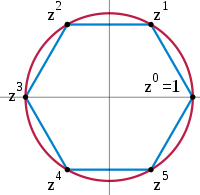McLaughlin sporadic group
| Algebraic structure → Group theory Group theory |
|---|
 |
|
Modular groups
|
Infinite dimensional Lie group
|
In the area of modern algebra known as group theory, the McLaughlin group McL is a sporadic simple group of order
- 27 ⋅ 36 ⋅ 53 ⋅ 7 ⋅ 11 = 898,128,000.
History and properties
McL is one of the 26 sporadic groups and was discovered by McLaughlin (1969) as an index 2 subgroup of a rank 3 permutation group acting on the McLaughlin graph with 275 = 1 + 112 + 162 vertices. It fixes a 2-2-3 triangle in the Leech lattice and thus is a subgroup of the Conway groups Co0, Co2, and Co3. Its Schur multiplier has order 3, and its outer automorphism group has order 2. The group 3.McL:2 is a maximal subgroup of the Lyons group.
McL has one conjugacy class of involution (element of order 2), whose centralizer is a maximal subgroup of type 2.A8. This has a center of order 2; the quotient modulo the center is isomorphic to the alternating group A8.
Representations
In the Conway group Co3, McL has the normalizer McL:2, which is maximal in Co3.
McL has 2 classes of maximal subgroups isomorphic to the Mathieu group M22. A permutation matrix representation of M22 on the last 22 coordinates fixes a 2-2-3 triangle with vertices x = (1, 5, 122), y = (−3, 123), and z the origin. x is type 3 while y and Template:Norap are type 2.
In the Leech lattice, suppose a type 3 point v is fixed by an instance of Co3. Count the type 2 points w such that inner product {{{1}}} and thus v-w is type 2. Wilson (2009) (p. 207) shows their number is 552 = 23⋅3⋅23. He also shows this Co3 is transitive on these w. Hence the subgroup McL is well-defined.
|McL| = |Co3|/552 = 898,128,000.
McL is the only sporadic group to admit irreducible representations of quaternionic type. It has 2 such representations, one of dimension 3520 and one of dimension 4752.
Maximal subgroups
Finkelstein (1973) found the 12 conjugacy classes of maximal subgroups of McL as follows:
- U4(3) order 3,265,920 index 275 – point stabilizer of its action on the McLaughlin graph
- M22 order 443,520 index 2,025 (two classes, fused under an outer automorphism)
- U3(5) order 126,000 index 7,128
- 31+4:2.S5 order 58,320 index 15,400
- 34:M10 order 58,320 index 15,400
- L3(4):22 order 40,320 index 22,275
- 2.A8 order 40,320 index 22,275 – centralizer of involution
- 24:A7 order 40,320 index 22,275 (two classes, fused under an outer automorphism)
- M11 order 7,920 index 113,400
- 5+1+2:3:8 order 3,000 index 299,376
Generalized Monstrous Moonshine
Conway and Norton suggested in their 1979 paper that monstrous moonshine is not limited to the monster. Larissa Queen and others subsequently found that one can construct the expansions of many Hauptmoduln from simple combinations of dimensions of sporadic groups. For the Conway groups, the relevant McKay–Thompson series is and .
References
- Conway, J. H.; Curtis, R. T.; Norton, S. P.; Parker, R. A.; and Wilson, R. A.: "Atlas of Finite Groups: Maximal Subgroups and Ordinary Characters for Simple Groups." Oxford, England 1985.
- Finkelstein, Larry (1973), "The maximal subgroups of Conway's group C3 and McLaughlin's group", Journal of Algebra, 25: 58–89, doi:10.1016/0021-8693(73)90075-6, ISSN 0021-8693, MR 0346046
- Griess, Robert L. Jr. (1998), Twelve sporadic groups, Springer Monographs in Mathematics, Berlin, New York: Springer-Verlag, ISBN 978-3-540-62778-4, MR 1707296
- McLaughlin, Jack (1969), "A simple group of order 898,128,000", in Brauer, R.; Sah, Chih-han, Theory of Finite Groups (Symposium, Harvard Univ., Cambridge, Mass., 1968), Benjamin, New York, pp. 109–111, MR 0242941
- Wilson, Robert A. (2009), The finite simple groups, Graduate Texts in Mathematics 251, 251, Berlin, New York: Springer-Verlag, doi:10.1007/978-1-84800-988-2, ISBN 978-1-84800-987-5, Zbl 05622792